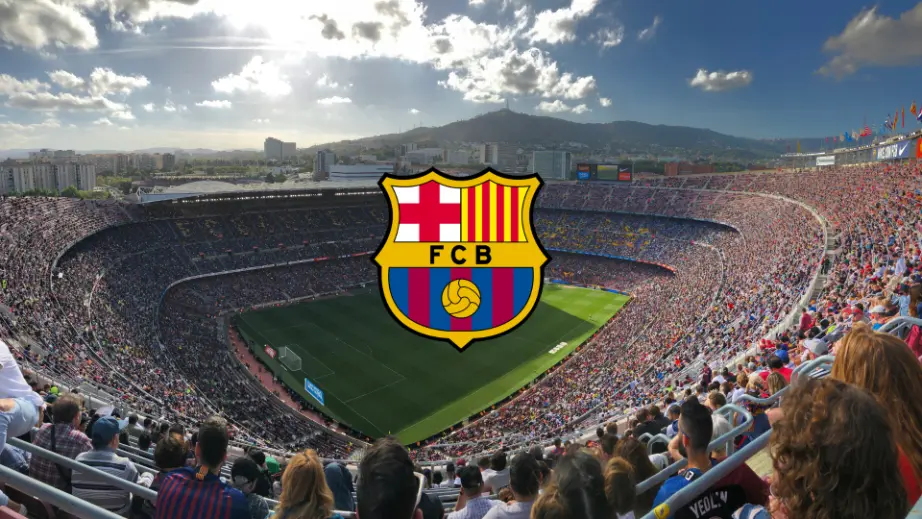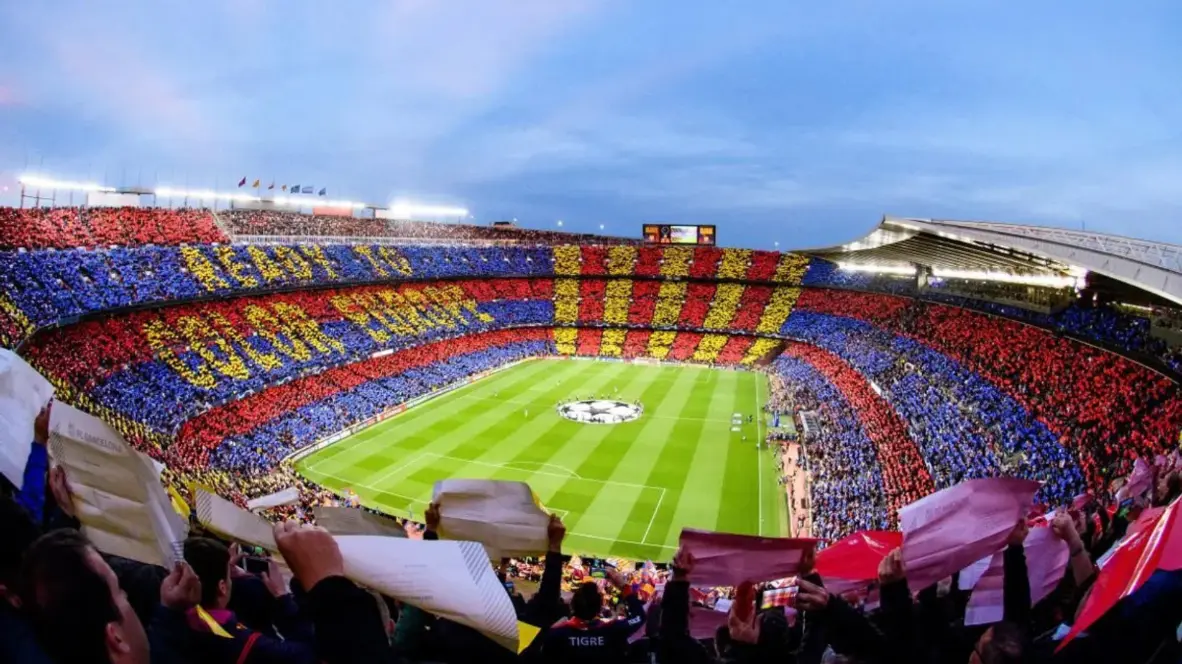FC Barcelona Net Worth 2025: Club Value, Revenues & Future Outlook
Updated on
Published on

FC Barcelona is not just a football club, it is a global sporting powerhouse. As a longtime Barça fan and financial observer, I find the club’s financial story in 2025 fascinating. So, what is FC Barcelona’s net worth in 2025? The Catalan club is valued around $5.65 billion, a figure that places it among the three most valuable football teams in the world. This lofty valuation reflects Barcelona’s massive global fanbase, historic brand, and revenue‑generating ability. But there is more to the story than one big number. Let’s break down how Barcelona’s net worth is built, where the money comes from, and what it means for the club’s future.
Club Valuation and Global Standing
With an estimated worth of $5.65 billion in 2025, FC Barcelona ranks as the third‑richest football club globally. Only Real Madrid and Manchester United are valued higher. In La Liga, Barcelona sits second in financial clout, just behind arch‑rival Real Madrid. Forbes highlights Barça’s elite status, fueled by decades of on‑pitch success and commercial growth. From my experience visiting Camp Nou, you can feel how enormous the club’s presence is, and that translates into financial might.
Barcelona’s valuation is backed by real financial performance. The club generated roughly $821 million in revenue in the last year, reflecting robust income streams despite recent challenges. Independent analyses rank Barcelona as the third most valuable football brand, with an estimated brand value of about €1.5 billion in 2024. Sponsors find the club attractive; the stadium’s title sponsorship by Spotify and the jersey deal with Nike bring global visibility. Overall, Barcelona’s net worth represents the club’s current profitability and its future earnings potential.

Annual Revenue Breakdown (Matchday, Broadcast, Commercial)
To understand how Barcelona makes money, let’s look at its annual revenues and main income streams. In the 2022/23 season the club’s total revenue was about €800 million and in 2023/24 it was around €760 million after a temporary dip. Revenue comes from three primary sources: matchday earnings, broadcast and media rights, and commercial activities.
- Matchday (Stadium Income): This includes gate receipts, season tickets, and stadium tours. During renovations the club played at the smaller Olympic Stadium, causing a loss of over €100 million in annual revenue. Despite this setback, revenue is expected to rebound once Barcelona returns to a modernized Camp Nou.
- Broadcast and Media Rights: Broadcasting revenue comprises La Liga TV rights, UEFA Champions League payouts, and other media deals, bringing in roughly €200 million to €250 million per year. Deep runs in European competitions boost these figures further.
- Commercial Activities: Commercial revenue is Barcelona’s largest income stream. In 2023/24 the club set a record with more than €210 million from sponsorships, thanks to partners like Spotify and Nike. Retail operations added nearly €110 million, bringing commercial income to around €400 million annually, roughly half of total revenue.
This diversified profile helps Barcelona remain financially competitive with Europe’s wealthiest clubs. Club President Joan Laporta aims for €1 billion plus in annual revenue in the coming years, a target that looks achievable once matchday income rises after the stadium renovation.
Squad Market Value and Player Investments
A football club’s players are major assets. **FC Barcelona’s squad in 2025 is valued at about €1.08 billion, placing it among the top squads worldwide. Seasoned stars like Robert Lewandowski lead the line, while rising talents such as Pedri, Gavi, and Lamine Yamal keep the roster valuable and marketable.
A few years ago Barcelona had to offload some big names due to financial constraints. Since then management has imposed strict cost controls, trimming the wage bill to about €500 million. The current squad mix, with a balance of youth development and selective star signings, maintains Barça’s competitive edge while supporting long‑term financial health.
Brand Value and Global Appeal
Barcelona’s influence stretches far beyond the pitch thanks to its powerful brand and worldwide following. The slogan “Més que un Club” speaks to a cultural identity that attracts supporters on every continent. Brand Finance valued FC Barcelona’s brand at around €1.5 billion in 2024, reflecting the club’s global recognition and marketing power.
The club’s huge social media following and international fanbase drive merchandise sales and sponsorship interest. Companies like Spotify partner with Barcelona for exposure to millions of fans, while the club’s heritage of success cements a prestige that itself has value.
Debt Levels and Financial Challenges
Barcelona’s debt levels ballooned in the early 2020s, forcing drastic measures. As of mid‑2023, total liabilities stood at roughly €2.7 billion. This includes long‑term debt for the stadium renovation, bank loans, and outstanding transfer fees. Past overspending, the pandemic, and stadium costs all contributed.
To stay afloat Barcelona sold portions of future revenue streams, including 25 percent of La Liga TV rights and 49 percent of Barça Studios. These asset sales brought in over €800 million in 2022/23, providing vital cash but sacrificing some future income.
The club also secured a €1.45 billion loan in 2023 for the Camp Nou overhaul. In June 2025, Barcelona refinanced €424 million of this debt via a bond issuance, pushing major repayments into the 2030s and easing near‑term pressure. Credit ratings improved, indicating restored confidence in the club’s outlook.
Barcelona has also worked to comply with La Liga’s salary caps, reducing the payroll by about €170 million. The club posted a small operating profit in 2023/24 despite recording an overall net loss due to one‑time expenses. The trajectory is positive but caution is still required.
Stadium and Infrastructure Updates (Espai Barça Project)
The Espai Barça project is a comprehensive plan to upgrade club facilities, highlighted by the Camp Nou renovation. The redesigned stadium will expand capacity to about 105,000 seats and add premium hospitality, restaurants, and a year‑round entertainment complex.
During the 2023/24 season Barcelona played at the Estadi Olímpic Lluís Companys, which reduced matchday income. The club plans a partial return to Camp Nou in the 2024/25 season, with full completion targeted before 2027. The upgraded stadium is expected to add over €200 million in annual revenue through ticket sales, hospitality, and events.
Financing the project required significant debt, but repayments are structured over the long term. The club expects the new revenue streams to cover these costs, securing financial benefits well into the future.

Financial Health and Future Outlook
In 2025 FC Barcelona’s financial health is improving, though the recovery is ongoing. The club’s net worth is enormous at $5.65 billion, revenues are strong, and a modernized Camp Nou promises even greater income. Barcelona’s brand remains powerful and the squad is filled with valuable talent.
Prudent management is crucial. The club has learned from its recent financial crisis and is focusing on sustainable growth, salary control, and revenue diversification. Creditors have regained confidence, and the club’s accountants are no longer in crisis mode.
With a world‑class stadium on the horizon and a disciplined financial plan, Barcelona is positioned for a renaissance. The coming years could bring a balance of sporting excellence and financial stability, solidifying its place at the top of football’s rich list and delighting fans for generations.
- Real Madrid Net Worth 2025: How Los Blancos Became Football’s Richest Club
- Top 10 Richest Bundesliga Clubs in 2025: Valuation Rankings & Financial Power
- La Liga Richest Clubs 2025: Top 10 Clubs by Valuation & Revenue
- Richest Premier League Clubs in 2025: Inside England’s Billion-Dollar Football Empire
FAQ
What is FC Barcelona’s net worth in 2025?
FC Barcelona is valued at roughly $5.65 billion in 2025, placing the club third worldwide and second in La Liga, driven by strong brand value and diversified revenue.
How does FC Barcelona generate most of its revenue?
Income comes from three main streams: matchday tickets and hospitality, broadcast payouts from La Liga and Champions League, and commercial deals like Spotify stadium naming plus Nike kit partnership.
Why is FC Barcelona’s debt still so high?
Legacy overspending, pandemic losses, and stadium financing pushed liabilities near €3 billion; refinancing and stricter wage controls are now easing annual repayment pressure and improving financial ratios.
When will the renovated Spotify Camp Nou reopen, and what revenue boost is expected?
A partial reopening is planned for the 2024–25 season with full completion by 2027; new hospitality and events should add more than €200 million to yearly income.
How valuable is FC Barcelona’s playing squad in 2025?
Transfer‑market estimates place the squad around €1.08 billion, thanks to stars like Robert Lewandowski and rising talents Pedri, Gavi, and teenage sensation Lamine Yamal.
Can Barcelona realistically hit €1 billion in annual revenue?
Yes. Once Camp Nou returns to full capacity and sponsorship activation ramps up, management projects annual revenue surpassing €1 billion, restoring Barcelona to parity with Europe’s wealthiest clubs.







